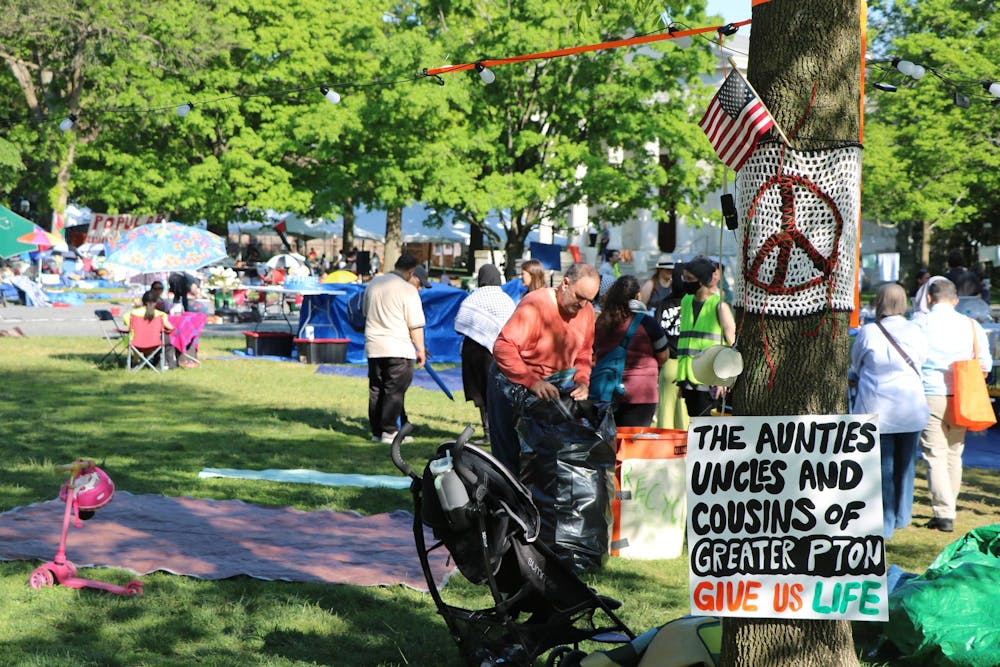The following is a guest contribution and reflects the author’s views alone. For information on how to submit a piece to the Opinion section, click here.
On Monday, Princeton faculty will take up a proposal to provide blanket amnesty to individuals facing disciplinary proceedings in connection with recent campus protests.
Much has been said about the nature of these protests, the University’s response, and the political conflicts that have inspired students and faculty to make their voices heard these past weeks. I have heard compelling arguments on these matters from all sides.
What has received comparatively little discussion is how Monday’s faculty meeting may affect the future legitimacy of Princeton’s internal processes for handling similar situations moving forward. As someone who studies fairness in law enforcement, I am concerned by the establishment of a precedent whereby disciplinary matters can be arbitrarily settled by a popular vote of the faculty.
My first concern is that disciplinary matters are often factually ambiguous, at least at the outset. By their nature, incidents which prompt disciplinary proceedings tend to involve individuals with differing accounts of events. The April 29 protest at Clio Hall offers a prime example: faculty and students in attendance have said protesters attempted a “peaceful sit-in” and behaved courteously throughout the incident, while University Vice President W. Rochelle Calhoun reported that “staff found themselves surrounded, yelled at, threatened, and ultimately ordered out of the building.”
Which account is more accurate? Most faculty will have no idea when we cast a vote on amnesty Monday. Rather, the vast majority of us, who did not witness the event, will be forced to rely on conflicting reports, rumors, intuition, and inevitably, our personal politics when making this decision.
Second, even if one believes the facts of this case to be unambiguous, taking this vote would set an extremely harmful precedent for the University that will negatively impact the perceived legitimacy of our processes. In short, fairness demands that all members of the Princeton community be subject to a common set of rules and procedures. We are all meant to be granted equal protection under these rules. Our established procedures for disciplinary matters do not call for a full faculty vote. We are arbitrarily deciding to handle this particular matter in this way.
I predict that if we proceed in this fashion, we will be faced with a dilemma in short order. There are many important political issues in the world about which people passionately disagree. It would be foolish to believe Princeton will not face a situation like this again in the near future. If we take this vote, we will either have to proceed in the same manner for every subsequent disciplinary matter, or exhibit a blatant inconsistency in how we do business.

In essence, my objection to the pending proposal is that it is simply not fair for the conduct of some students and faculty to be evaluated under one system, while the rest are evaluated under another. It is a clear violation of the tenets of procedural justice.
Indeed, some of the complaints about how University officials have handled recent events are tied to apparent inconsistencies with how prior protests have been addressed. It has been cited, for example, that past sit-ins on Princeton’s campus did not prompt arrests.
The consternation over this disconnect is understandable, and speaks to the inherent injustice we all sense when we perceive that different standards are being applied arbitrarily. But the solution is not further deviation from our established procedures. Rather, Princeton should use this opportunity to clarify and commit to the enforcement of a common set of rules and processes that will apply in a viewpoint-neutral manner moving forward.
Ruling on amnesty for protesters by way of an ill-informed faculty vote is not wise, or just. The way to adjudicate conflicting accounts of recent events and arrive at a fair resolution is through a careful investigative process, which is precisely what our established disciplinary procedures provide. I urge Princeton faculty and administrators to be forward looking, and proceed in a principled manner that will be appropriate for the similar situations we are bound to face in the future.

With these concerns in mind, I will be voting against Monday’s proposal.
Jonathan Mummolo is an associate professor of Politics and Public Affairs. He can be reached at jmummolo[at]princeton.edu.








